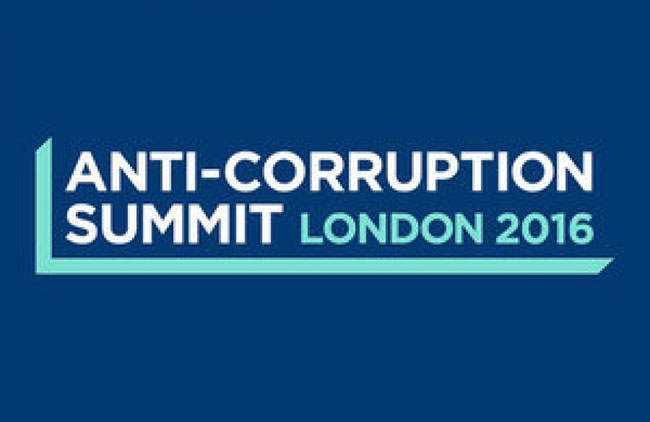Corruption poses a serious threat to Afghanistan’s nation-building and development agenda. Over the years, it has increased dramatically and emerged as one of the biggest challenges facing the country’s reconstruction efforts and strengthening national governance. It is an undeniable fact that corruption hurts the poor disproportionately by diverting funds intended for development thereby undermining the government’s ability to provide basic services, promote inequality and injustice, and discourage foreign investment. Lack of an efficient and transparent public service has alienated the poor in the villages and cities from the development process. The poor have started questioning the whole paradigm of development.
Afghans have been wrestling with corruption, which is going on in government’s machinery, for many years. For instance, bribery and law of impunity for influential individuals are widely practiced in judicial system. In other words, the poorer one is the more vulnerable he will be to major penalty for a minor mistake or offence, high-ranking figures, however, are hardly penalized in the face of involving in serious crimes. Since there are many barriers ahead of anti-corruption campaign, it will never ebb if this trend continues.
It is believed that much of the corruption, in the country, takes the form of petty corruption, with clerks demanding small bribes to stamp forms or officers at checkpoints requiring truck drivers to pay to enter cities. But some are more audacious, such as selling government land for luxury housing projects, etc.
Moreover, lengthy and complicated procedures, unnecessary delays, getting unnecessary signatures in applications, papers or document and recording unnecessary letters are issues that remain in public service delivery. This process has become so difficult, intolerable, time consuming and expensive and it often causes people to give up. All these processes involve and facilitate petty corruption.
Of late, British Prime Minister David Cameron has called Nigeria and Afghanistan “possibly the two most corrupt countries in the world” even as he hailed their leaders’ planned attendance at an anti-corruption summit in London. “We’ve got some leaders of some fantastically corrupt countries coming to Britain,” Cameron is quoted as saying, apparently referring to the anti-corruption summit he is hosting today. Nigerian President Muhammadu Buhari and Afghanistan’s President Muhammad Ashraf Ghani are both due to attend London summit alongside US Secretary of State John Kerry and the heads of the International Monetary Fund and the World Bank.
Evidence suggests that corruption pervades many of Afghanistan’s key sectors and institutions. In 2012 an Asia Foundation public opinion survey of the Afghan people cited corruption as being ranked as the second biggest problem at a national level after insecurity, while Transparency International ranked Afghanistan at 172 out of 175 countries in the 2014 Corruption Perceptions Index.
Reducing corruption is a prerequisite for ensuring long-term sustainable development and stability in the country. It has become clear to policy makers that for Afghanistan to emerge as a strong and democratic state, the government has to take concrete steps to eradicate the growing corruption in public administration as a priority.
As previously mentioned, Afghanistan faces numerous daunting governance challenges which need to be addressed if long term stability in the country is to be achieved. But alongside larger-scale changes, immediate steps can and must be taken to curb the devastation caused by corruption.
First, Afghanistan must establish a new independent body to lead and coordinate the fight against corruption and ensure that it is well-resourced and its activities are truly free from political interference.
Second, the government should establish an independent judicial service commission to select, appoint and train new judges and judicial staff. The commission should be empowered to make recommendations to parliament on any existing judges who do not meet required levels of integrity.
Third, the government should appoint with the highest levels of integrity to key posts, including the Attorney General, who should have a track record of showing leadership against corruption. The government should ensure the recruitment of staff on the basis of merit and expertise. It is said that half of Afghan citizens paid a bribe, in 2012, while requesting a public service. So, it is because a number of people were most likely employed on the grounds of their relations.
If major anti-corruption initiatives are to be firmly anchored in Afghanistan, there needs to be a distinct national government agency dedicated to curbing corruption. Therefore, Transparency International invites the Afghanistan government to establish an independent anti-corruption agency (ACA) with strong preventive and investigative functions. Moreover, this agency should develop mechanisms of cooperation with existing organizations involved in anti-corruption activities in order to ensure a holistic approach to its endeavors.
Hopefully, Afghan leaders will take firm step to tackle this interminable issue. Responding to the recent comments by David Cameron, Cobus de Swardt, Managing Director of Transparency International said: “There is no doubt that historically, Nigeria and Afghanistan have had very high levels of corruption, and that continues to this day. But the leaders of those countries have sent strong signals that they want things to change, and the London Anti-Corruption Summit creates an opportunity for all the countries present to sign up to a new era.”
It is hoped that the summit will help to mitigate the corruption not only in Afghanistan but in any other countries around the world, which are in the same boat.
Home » Opinion » Will London Anti-Corruption Summit Decrease Corruption in Afghanistan?
Will London Anti-Corruption Summit Decrease Corruption in Afghanistan?
| Hujjatullah Zia

